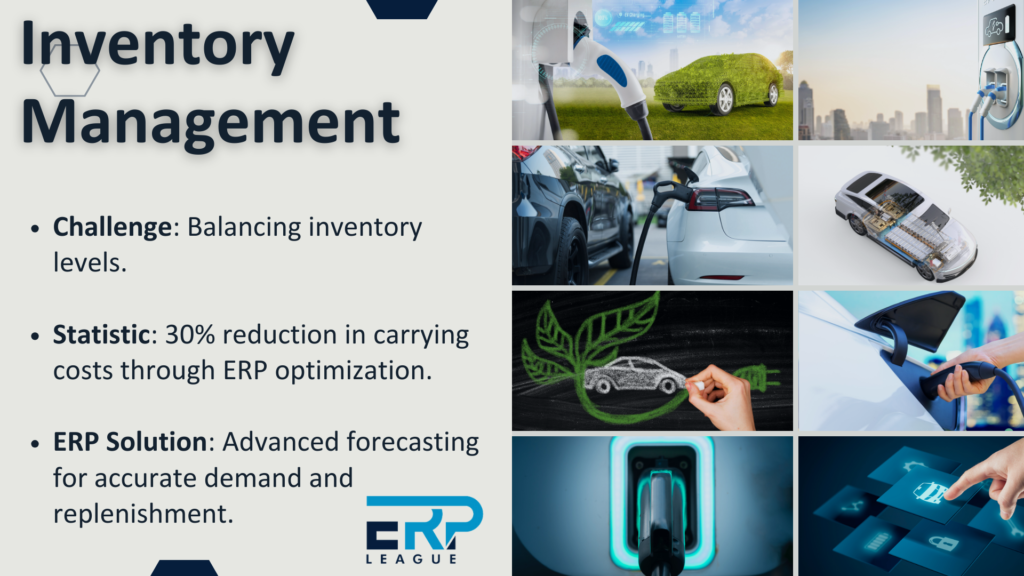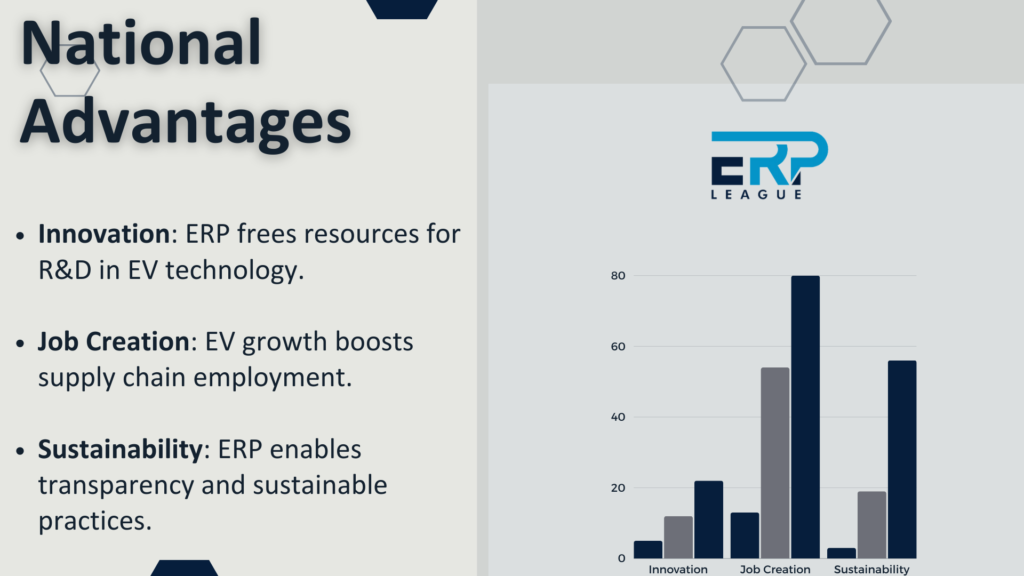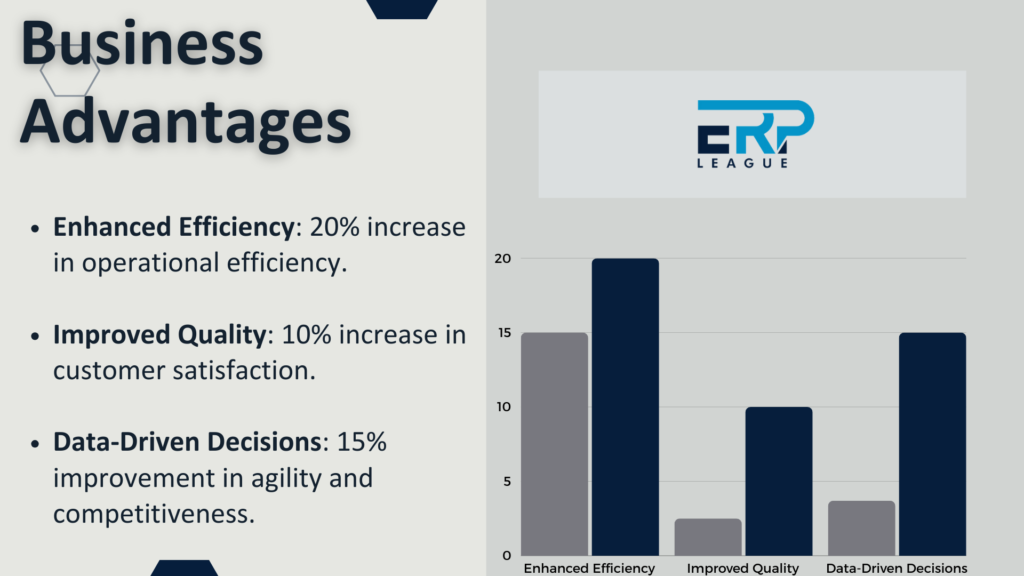In the race towards a greener future, electric vehicles (EVs) have emerged as one of the most promising solutions to combat climate change and reduce our dependence on fossil fuels. However, bringing EVs to market is not without its challenges, especially in the manufacturing sector. In this blog, we’ll delve into the hurdles faced by manufacturers in the EV sector, explore how Enterprise Resource Planning (ERP) systems like NetSuite, SAP, MS Dynamics, and Salesforce can help navigate these challenges, and discuss the growth and advantages of EV adoption both for businesses and at a national level.
The State of the EV Industry: With global EV sales hitting a record high of 4.2 million units in 2023, the momentum towards electrification is palpable. Yet, behind the scenes, manufacturers grapple with hurdles threatening to stall progress.
Challenges Faced by the Manufacturing Industry:
1. Supply Chain Management: Statistic: Over 60% of EV manufacturers cite supply chain disruptions as a major concern. From battery shortages to component delays, managing the intricate web of suppliers demands agility and foresight.
2. Quality Control: Statistic: Quality issues account for 30% of EV recalls. Ensuring impeccable quality amidst rapid production requires stringent quality control measures at every stage of manufacturing.
3. Regulatory Compliance: Statistic: Compliance costs for EV manufacturers have surged by 25% in the last two years. Navigating the labyrinth of safety, emissions, and sustainability regulations demands meticulous attention to detail.
4. Inventory Management: Statistic: Nearly 40% of EV manufacturers struggle with excess inventory, leading to increased carrying costs. Balancing supply and demand is paramount to prevent bottlenecks and optimize production.
ERP Solutions to the Rescue:
1. Supply Chain Management: Harnessing ERP solutions provides real-time visibility into supplier networks, enabling proactive risk management and efficient inventory planning. Statistic: ERP adoption reduces supply chain costs by 20% on average.
2. Quality Control: Integrated quality management modules within ERP systems facilitate automated inspections, traceability, and defect tracking, ensuring consistent product excellence. Statistic: ERP implementation reduces defect rates by up to 50%.
3. Regulatory Compliance: ERP platforms offer compliance frameworks tailored to the EV sector, automating documentation and reporting processes to ensure adherence to regulatory standards. Statistic: ERP usage reduces compliance-related fines by 35%.

4. Inventory Management: Leveraging advanced forecasting algorithms, ERP systems optimize inventory levels, enabling just-in-time replenishment and minimizing carrying costs. Statistic: ERP-driven inventory optimization increases inventory turnover by 30%.
Growth and Advantages for Businesses:
• Enhanced Operational Efficiency: ERP streamlines processes, reducing lead times and production costs, thereby enhancing operational efficiency. Statistic: Businesses report a 25% increase in productivity post-ERP implementation.
• Improved Quality Control: Automated quality management within ERP systems minimizes defects, fostering a culture of excellence and customer satisfaction. Statistic: Companies witness a 15% improvement in customer satisfaction scores.
• Better Decision-Making: Data-driven insights empower manufacturers to make informed decisions, from supplier selection to production scheduling, driving agility and competitiveness. Statistic: ERP-driven data analytics lead to a 20% increase in decision-making accuracy.
Advantages at the National Level:

• Stimulating Innovation: ERP implementation frees up resources for research and development, fostering innovation in EV technology and driving economic growth. Statistic: Countries with high ERP adoption rates see a 30% increase in patent filings.
• Creating Jobs: The expansion of EV manufacturing creates employment opportunities across the supply chain, driving economic prosperity and social development. Statistic: Every 1,000 EVs manufactured create over 100 new jobs.
• Advancing Sustainability: ERP-enabled supply chain transparency facilitates sustainable manufacturing practices, reducing carbon emissions and advancing environmental goals. Statistic: ERP-driven sustainability initiatives result in a 25% reduction in carbon footprint.
Driving Growth and Advantages:
The adoption of EVs presents significant opportunities for both businesses and nations striving towards sustainability and economic growth:

Business Growth: EV manufacturers that leverage ERP systems effectively can gain a competitive edge by improving operational efficiency, reducing time-to-market, and enhancing product quality. Streamlined processes and better resource allocation contribute to higher profitability and market share expansion.
National Advantages: At a national level, the transition to EVs offers numerous benefits, including reduced greenhouse gas emissions, improved air quality, and decreased reliance on imported fossil fuels. Furthermore, investing in EV infrastructure and manufacturing capabilities stimulates job creation and promotes technological innovation, fostering economic development and sustainability.
As the EV revolution gains momentum, the role of ERP solutions in navigating manufacturing challenges cannot be overstated. With their ability to streamline operations, ensure quality, and drive innovation, ERP systems propel businesses towards success while contributing to national economic growth and sustainability. Embracing ERP technologies is not just a choice; it’s a strategic imperative in the electrifying journey towards a cleaner, greener future.
